Religious Naturalism: Books
Further resources, if available, can be found in our full bibliography.
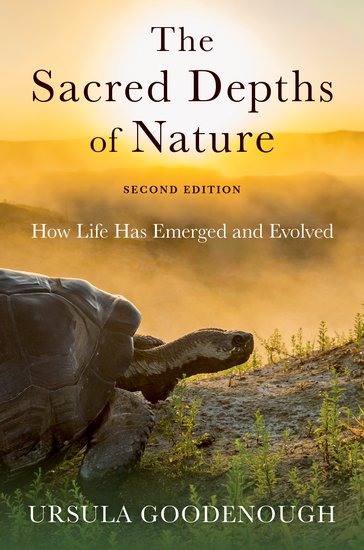
This volume, first published in 1998, reconciles the modern scientific understanding of reality with timeless spiritual yearnings for reverence and continuity. Looking at topics such as evolution, emotions, sexuality, and death, Goodenough writes with rich, uncluttered detail about the workings of nature in general and of living creatures in particular. Her luminous clarity makes it possible for even non-scientists to appreciate that the origins of life and the universe are no less meaningful because of humanity’s increasingly scientific understanding of them. At the end of each chapter, Goodenough’s spiritual reflections respond to the complexity of nature with vibrant emotional intensity and a sense of reverent wonder. This new edition offers a deepened consideration of emergent properties and emergent dynamics, as well as an exploration of their role as the generators of life’s complexity. Goodenough also expands upon the ethic of ecomorality in a new chapter, and incorporates new quotes, figures, and poems in her analysis.
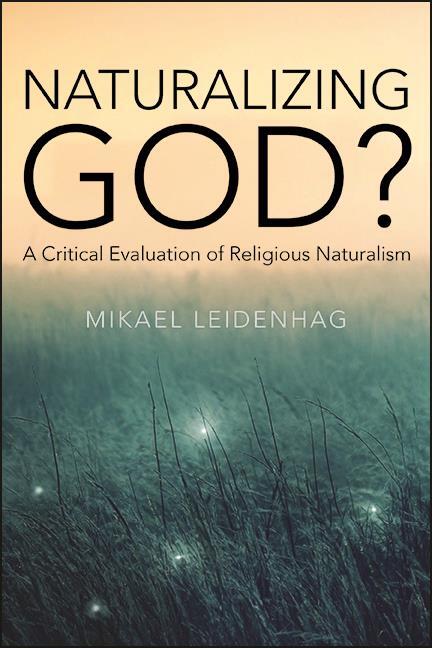
Can nature be considered a religious object? Religious naturalists answer yes, as they seek to carve out a middle path between supernaturalism and atheistic secularism. In this book, Mikael Leidenhag critically examines the religious proposals, philosophical commitments, and ecological ambitions of key religious naturalists, including Willem B. Drees, Charley D. Hardwick, Donald Crosby, Ursula Goodenough, Stuart Kauffman, Gordon Kaufman, Karl Peters, and Loyal Rue. Leidenhag argues that contemporary religious naturalism faces several problems, both with regard to its understanding of naturalism and the ways in which it seeks to uphold a religious conception of reality. He evaluates possible routes for moving forward, considering naturalistic and theistic proposals. He also analyzes the philosophical thesis of panpsychism, the idea that mind is a pervasive feature of the universe and reaches down to the fundamental levels of reality. The author concludes that panpsychism offers the most promising framework against which to understand the metaphysics and eco-ethical ambitions of religious naturalism.
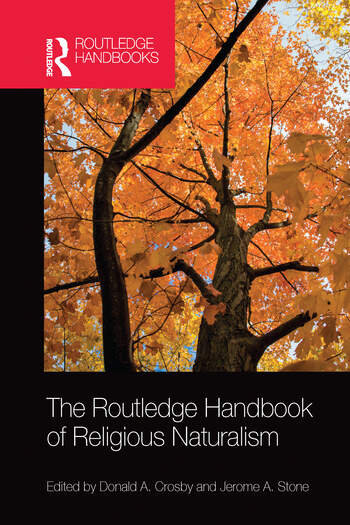
Ecological crisis is being widely discussed in society today and therefore, the subject of religious naturalism has emerged as a major topic in religion. The Routledge Handbook of Religious Naturalism is an outstanding reference source to the key topics, problems, and debates in this exciting subject and is the first collection of its kind. Comprising thirty-four chapters by a team of international contributors, the Handbook is divided into seven parts: Varieties of religious naturalism and its relations to other outlooks; Some earlier religious naturalists; Pantheism, materialism, and the value-ladenness of nature; Ecology, humans, and politics in naturalistic perspective; Religious naturalism and traditional religions; Putting religious naturalism into practice; and Critical discussions of religious naturalism.
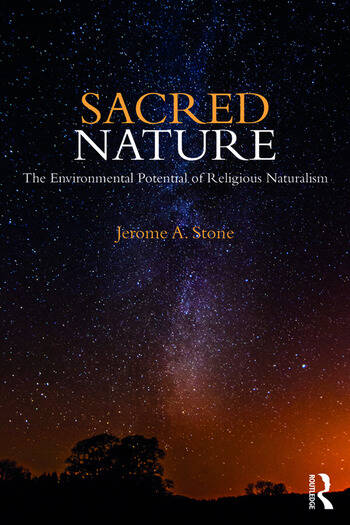
Sacred Nature: The Environmental Potential of Religious Naturalism
Jerome Arthur Stone
Routledge
2017
Sacred Nature examines the crisis of environmental degradation through the prism of religious naturalism, which seeks rich spiritual engagement in a world without a god. Jerome Stone introduces students to the growing field of religious naturalism, exploring a series of questions about how it addresses the environmental crises, evaluating the merits of public prophetic discourse that uses the language of spirituality. He presents and defends the concept of religious naturalism while drawing out the implications of religious naturalism for addressing some of the major environmental issues facing humans today. This book is designed for undergraduate and graduate students, as well as scholars specializing in contemporary religious thought or environmental studies.
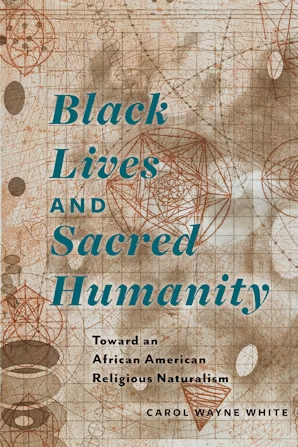
Black Lives and Sacred Humanity: The Emergence of an African-American Religious Naturalism
Carol Wayne White
Fordham University Press
2016
Identifying African American religiosity as the ingenuity of a people constantly striving to inhabit their humanity and eke out a meaningful existence for themselves amid harrowing circumstances, Black Lives and Sacred Humanity constructs a concept of sacred humanity and grounds it in the writings of Anna Julia Cooper, W. E. B. Du Bois, and James Baldwin. Supported by current theories in science studies, critical theory, and religious naturalism, this concept, as Carol Wayne White demonstrates, offers a capacious view of humans as interconnected, social, value-laden organisms with the capacity to transform themselves and create nobler worlds wherein all sentient creatures flourish. Acknowledging the great harm wrought by divisive and problematic racial constructions in the United States, this book offers an alternative to theistic models of African American religiosity to inspire newer, conceptually compelling views of spirituality that address a classic, perennial religious question: What does it mean to be fully human and fully alive?
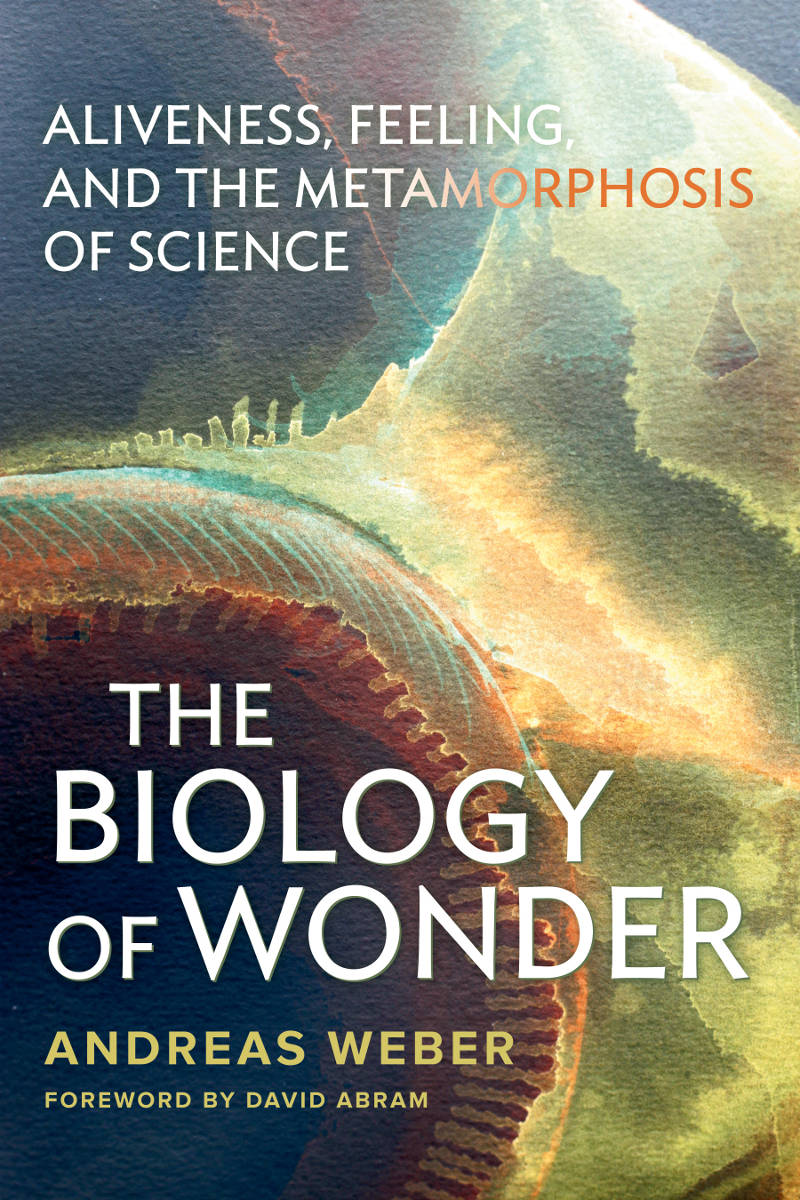
The Biology of Wonder: Aliveness, Feeling, and the Metamorphosis of Science
Andreas Weber
New Society Press
2016
In The Biology of Wonder, scientist Andreas Weber reframes this fundamental enigma by arguing that all living beings, like humans, are not biological machines, but living, creative agents fueled by meaning and expression. Weber proposes a new approach–the development of a “poetic ecology”–which intimately attaches the human species to every being and underpins the entire range of human experience. He argues that feelings and emotions, far from being superfluous to the study of organisms, are the very foundation of life.
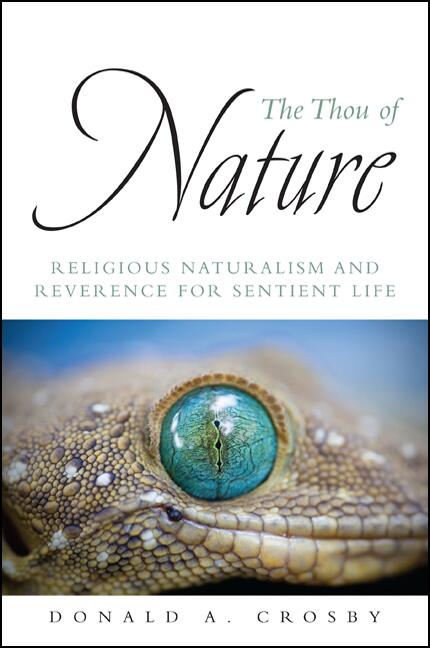
The Thou of Nature: Religious Naturalism and Reverence for Sentient Life
Donald A. Crosby
SUNY Press
2013
Humans share the Earth with non-human animals who are also capable of conscious experience and awareness. Arguing that humans should develop an I-thou, not an I-it, relationship with other sentient beings, Donald A. Crosby adds a new perspective to the current debates on human/animal relations and animal rights–that of religious naturalism. Religious naturalism holds that the natural world is the only world and that there is no supernatural animus or law behind it. From this vantage point, fellow thous are entitled to more than merely moral treatment: protection and enhancement of their continuing well-being deserves to be a central focus of religious reverence, care, and commitment as well. A set of presumptive natural rights for non-human animals is proposed and conflicts in applying these rights are acknowledged and considered. A wide range of situations involving humans and non-human animals are discussed, including hunting and fishing; eating and wearing; circuses, rodeos, zoos, and aquariums; scientific experimentation; and the threats of human technology and population growth.
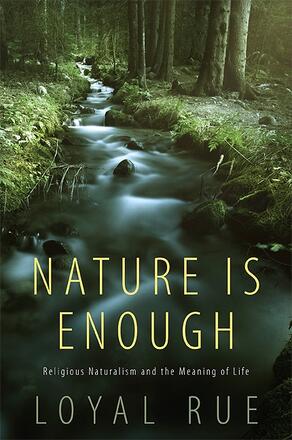
Nature is enough: enough to allow humans to find meaning in life and to answer their religious sensibilities. This is the position of religious naturalists, who deny the existence of a deity and a supernatural realm. In this book, Loyal Rue answers critics by describing how religious naturalism can provide a satisfying vision of the meaning of human existence. The work begins with a discussion of how to evaluate the meaning of life itself, referencing a range of thought from ancient Greek philosophy to the Abrahamic traditions to the Enlightenment to contemporary process and postmodern philosophies. Ultimately proposing meaning as an emergent property of living organisms, Rue writes that a meaningful life comes through happiness and virtue. Spiritual qualities that combine evolutionary cosmology and biocentric morality are described: reverence, gratitude, awe, humility, relatedness, compassion, and hope. Rue looks at why religious naturalism is not currently more of a movement, but nevertheless predicts that it will become the prevailing religious sensibility.
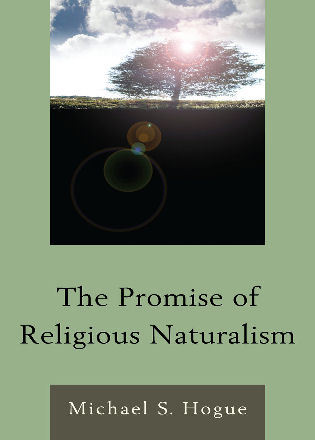
The Promise of Religious Naturalism explores religious naturalism as a distinctly promising form of contemporary religious ethics. Examining how religious naturalism responds to the challenges of recent religious transformations and ecological peril worldwide, author Michael Hogue argues that religious naturalism is emerging as an increasingly plausible and potentially rewarding form of religious moral life. Beginning with an introduction of religious naturalism in the larger context of religious and ethical theories, the book undertakes the first extended study of the works of religious naturalists Loyal Rue, Donald Crosby, Jerome Stone, and Ursula Goodenough. Hogue pays particular attention to the ethical components of religious naturalism in relation to religious pluralism and ecological issues.
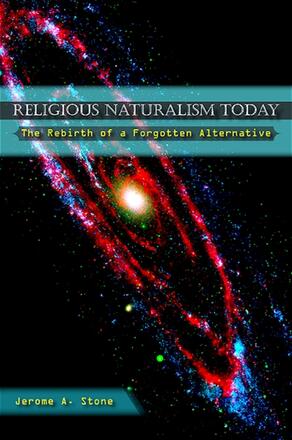
Religious Naturalism Today: The Rebirth of a Forgotten Alternative
Jerome Arthur Stone
SUNY Press
2008
Previously a forgotten option in religious thinking, religious naturalism is coming back. It seeks to explore and encourage religious ways of responding to the world on a completely naturalistic basis without a supreme being or ground of being. In this book, Jerome A. Stone traces its history and analyzes some of the issues dividing religious naturalists. He includes analysis of nearly fifty distinguished philosophers, theologians, scientists, and figures in art and literature, both living and dead. They range from Ursula Goodenough, Gordon Kaufman, William Dean, Thomas Berry, and Gary Snyder to Jan Christiaan Smuts, William Bernhardt, Gregory Bateson, and Sharon Welch.
Photo Credit: Shrine Pass, Red Cliff, Colorado; Joel Holland/Unsplash